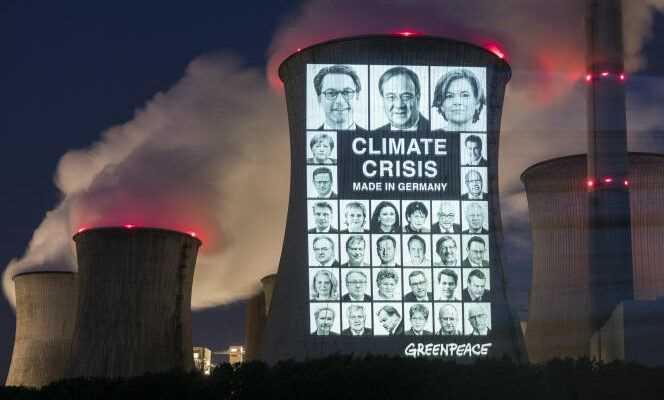Houses destroyed up to the first floor. Gigantic landslides. The damage is estimated at 30 billion euros. Above all, with a terrible human toll: 180 dead and missing. The flood drama in the west of the country in July will undoubtedly mark a turning point in German history. It was the year when the company realized that it was already directly affected by the climate change and that the decarbonisation effort had to be considerably accelerated. The IPCC report in August, after a summer of global disasters, further reinforced this awareness.
A few months earlier, a decision of the German Constitutional Court had been a game-changer for politicians: in a major judgment, delivered in April, the judges of Karlsruhe considered as insufficient the efforts announced by the government to fight against climate change , on the grounds that they threatened the freedoms of future generations. As a result, the government has decided to tighten its emissions reduction schedule: Germany must achieve carbon neutrality in 2045, and not in 2050 as initially planned. The reduction must be 65% by 2030. The effort is considerable: it is five times what has been achieved on average over the last thirty years.
The good news is that German society, industry and unions seem to be ready, in theory, for a change. This is evidenced by the campaign for the general elections of September 26, which is currently in full swing. The Green Party, after having been for a short time in the spring in the lead in voting intentions, ranks third in the polls and has a good chance of playing a central role in the coming government. Conservatives and Social Democrats, traditionally concerned with industrial interests and related jobs, significantly stepped up their environmental rhetoric over the summer, as did the big union IG Metall.
The auto industry is changing its tone
Even the powerful auto industry, which once held back any mandatory reductions in vehicle emissions, has changed the stance. The entire industry is working on its electrification. “We have to eliminate the CO2, there is no doubt “, thus declared on 1er September daily Süddeutsche Zeitung, Markus Duesmann, the boss of the manufacturer Audi, a subsidiary of Volkswagen, which has decided to no longer market thermal vehicles in 2033. Manufacturers are under pressure from environmental associations: Greenpeace and Deutsche Umwelthilfe announced Friday, September 3 to file a complaint against the manufacturers Volkswagen, BMW and Mercedes for non-compliance with the 2015 Paris Treaty.
You have 70.81% of this article to read. The rest is for subscribers only.
